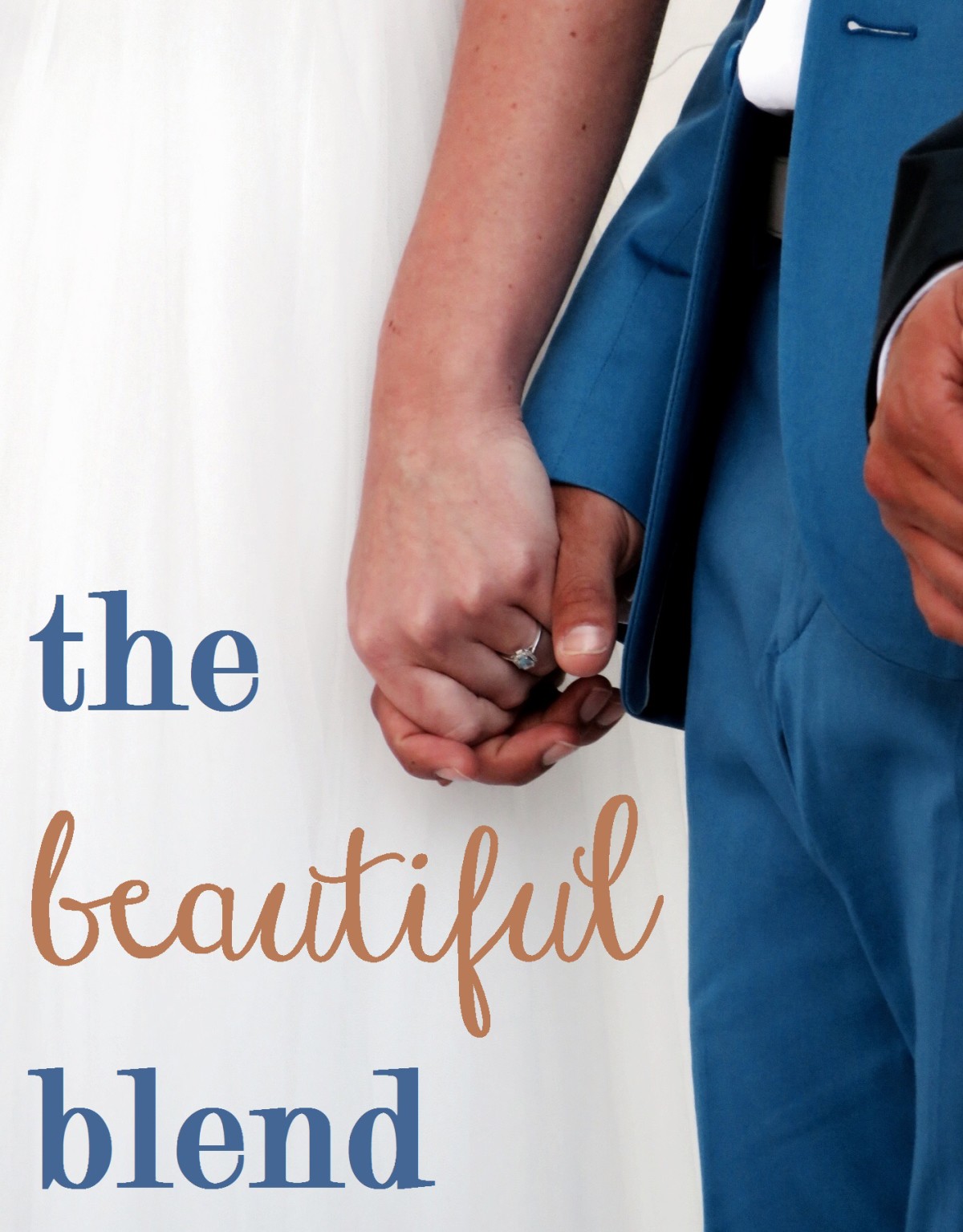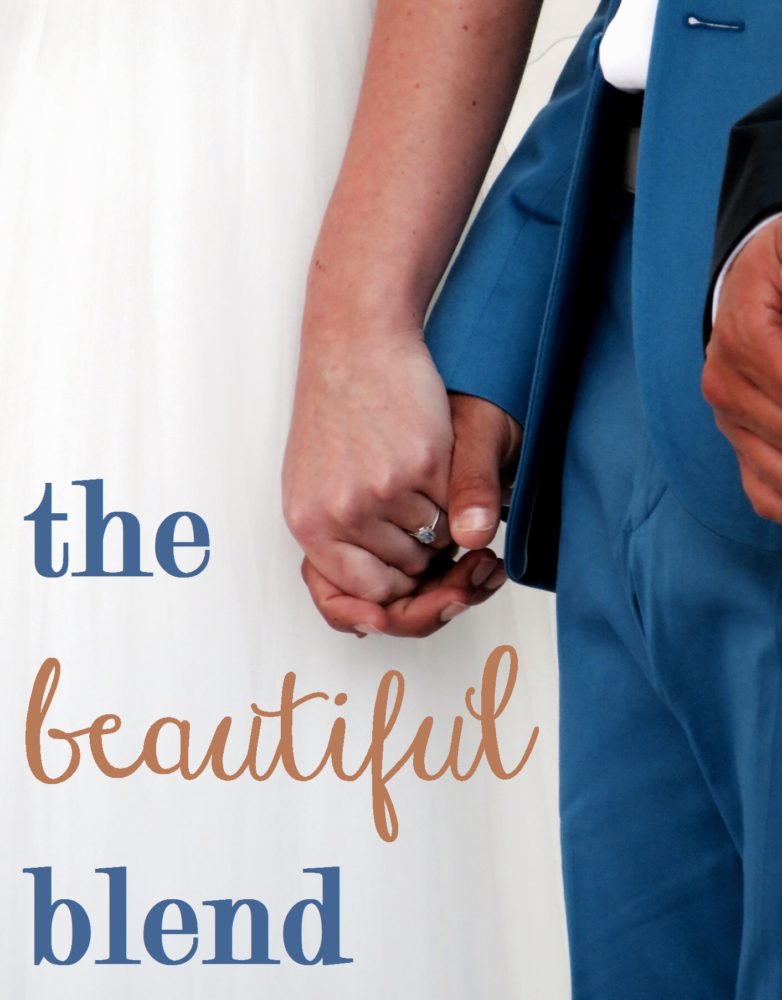When I was last in the U.S., tinkering around in my mother’s kitchen, a remark caught my attention. “You know,” she said thoughtfully, “you and [your husband] are more different from any of your sisters and their husbands.” She and my dad are similar, too, come to think of it. She offered a few examples, and I had to admit: She was right.
Perhaps after fifteen years I should have noticed this. I just assumed that most people ran headlong into as much disparity as my husband and I.
He and I are the kind of people that might cause one to say, Well, hey. If we shook those two up in a bag, there’d probably be a remarkable person!
He’s particularly private, for example. I have no problem that my life and issues are plastered around on the internet as a vast warning on what not to do (and hopefully occasionally the opposite).
He’s one of those guys who picks up the ball for a new sport, and would you look at that? He looks like he’s been playing since he was six. I, on the other hand, pride myself on those moments when I can successfully pick up a ball. (I have been trying to convince the man for years that my cheerleading was a sport. I believe the doubt lies not over the sport, but on just how athletic it could be with me in it.)
He’s precise; I’m…free spirited. So is my kitchen with the spattered countertops and yummy food.
He’s an independent introvert with a tilting stack of non-fiction beside his bed. I’m a go-with-the-flow extrovert who plows through fiction on my Kindle.
You getting me?
I people-watched the other day (he was, at the time, enjoying some independence): I eyed a lot of older married couples, which often makes me feel happy. There is something deeply satisfying about couples who have remained together despite the thinning hair, or creases around the eyes, or folds of skin lopping over belts. I think of the moments they’ve witnessed together, the storms they’ve weathered. Some were even headed to a Zumba class together.
This was following a conversation between my husband and I–as painful to watch as a three-legged-race gone awry, tripping all over each other, even in our best efforts to work with each other. I wondered if other couples, whose partners married more similarly to themselves, had to wrestle as we did to synchronize, to become and stay teammates and best friends. (I felt it particularly when we were both tired.)
But, I admitted sitting there, subtracting those differences would completely flatten all the parts I love about our relationship; our meandering, adventurous path together; my own character.
I shudder to think of the insecure, clutching ways in which I would have sought to “help” people, the thoughtless ways I would have steamrolled others, and the timid lack of creativity that would have characterized my work and my life without the bold, colorful, refining strokes that God has painted in my life through this man.
The work of enduring love changes me, too–as I’ve written about with my son’s learning disorder. Working to love someone well whose personality and family subculture poses such a striking contrast widens my perspective, my capability to love, my graciousness and understanding. Loving people unlike ourselves–when we can patiently wait for the dissonance like a junior-high band to pass–produces the swelling, overwhelming harmonies of a full orchestra.
It’s another step to remind me that my relationships aren’t subjects in my kingdom, but opportunities to serve.
It’s also heightened my dependence on God, when I realize just how impoverished I am to love in challenging ways.
Together, we make a crazy-cool team. And it was within hours of that conversation that the differences which separated us somehow added to the glue that held us together–still so in love, laughing and flirting.
So, yes. He’s poised; I’m bubbly and (I tell myself) endearing. He loves to listen to music, while I love to make it.
But our differences are a testimony to the striking symphonies of a Conductor far greater than both of us, who cares more for our holiness than our happiness–but knows with the former, the latter quickly comes.









5 Comments
» The Beautiful Blend - 10 years ago
[…] The Beautiful Blend […]
Jody - 10 years ago
Amen Janel! Love your knack for words (duh, might just be why you r such a gifted writer). I too have noticed such a glorious sanctification of character through God’s gift to me in Rich…..and my children!! Rich and I too, are SO different….. not as much iron sharpening iron as sandpaper smoothing out sandpaper….lol. Praying for you as you serve our King!!
Janel - 10 years ago
I so get you–and working overseas has only amplified how much I really needed someone to round me out :). I’m so grateful that God didn’t choose to leave me like I was/am. Thanks so much for the warm words. Praying for you, too, as you adjust to your beautiful new life!!
My assignment–from God | a generous grace - 10 years ago
[…] now, my conflicts with my husband, my kids, or, y’know, urban traffic stand ripe with possibility, with the ability to shape […]
"We Never Fight": The Problem with Zero Conflict - THE AWKWARD MOM - 10 years ago
[…] Marriage, for example, requires effort to synchronize, to become and stay teammates and best friends. (You might be interested in a post on a slice of this from my own marriage.) […]